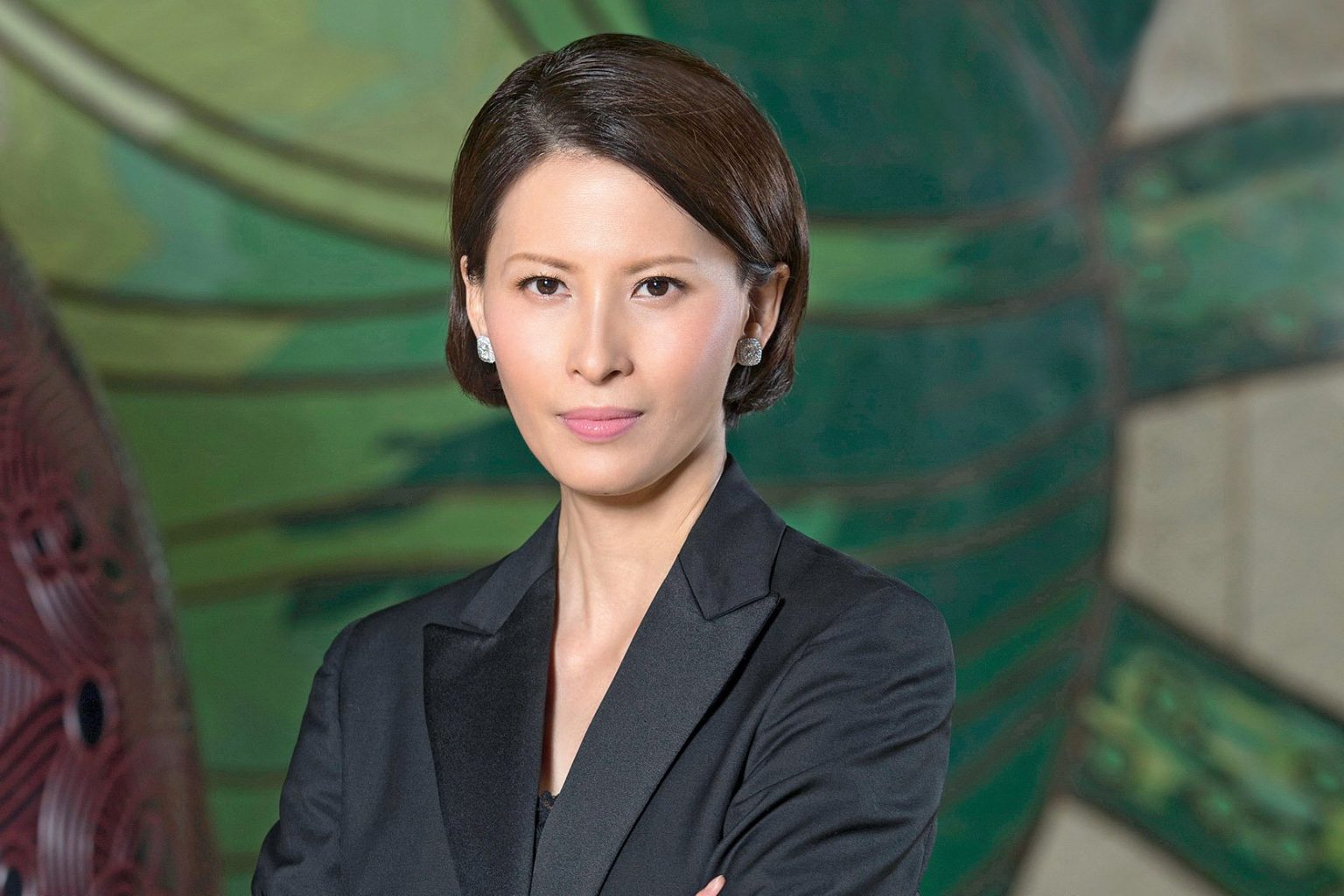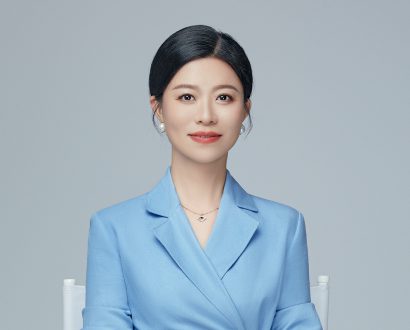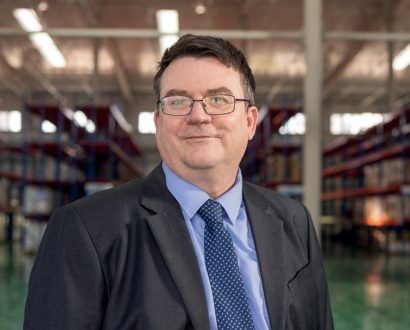Changing the narrative around diamonds is crucial to the company’s future success, Nancy insists. After all, why should women have to wait around for an engagement ring in order to enjoy the luxury of diamond jewellery?
“That narrative is one that is not necessarily in step with the times today with women’s self-empowerment, their education and their income levels,” she argues. “We see clearly that in key markets around the world, women are buying diamonds for themselves – what we call self-purchase.”
Women are also buying the precious gemstones for their loved ones, but somehow this self-purchase and gifting by females has been overlooked, Nancy says. “If we can help to change that narrative, it would be very important for both the consumer and the industry,” she explains.
To commemorate the famous Millennium Star diamond in 2000, Forevermark, part of the De Beers Group and synonymous with diamonds, created a proprietary inscription that is invisible to the naked eye, to guarantee a diamond was genuine, natural and untreated.
However, the trustmark was repositioned in 2008 as a consumer brand and now operates in 32 markets around the world, across 2,490 outlets. The plan is to add between 50 and 100 additional new stores this year, a number which Nancy considers more subdued than previous years. “The aim is not to expand rapidly across markets for the next three to five years,” she says.
“We’ve readjusted our strategy in that we want to work much closer with our partners to ensure that they have greater profitability.” Nancy, formerly COO at the company, became CEO of Forevermark in 2019. Before joining the diamond company, she held roles at Boston Consulting Group and Louis Vuitton.
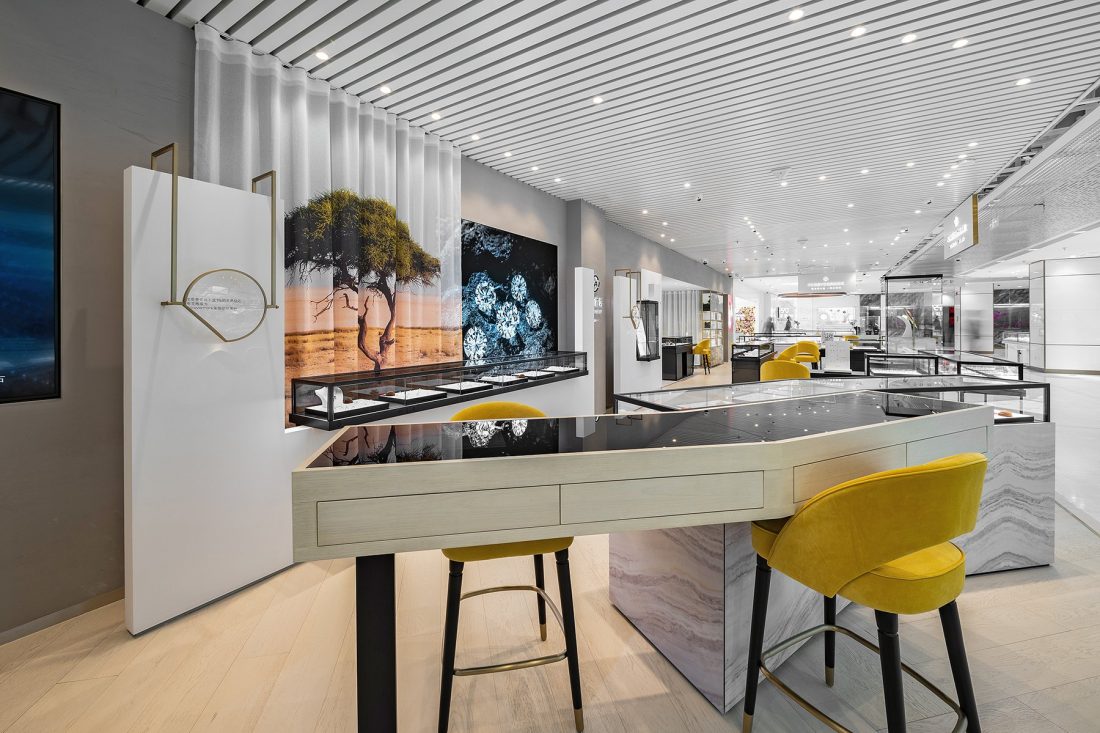
She describes her current position as one of the “most complex” of her career due to the wide range of external stakeholders, which includes regulators, stores, jewellers and diamond dealers, whereas her past experience was more “focused”.
The COVID-19 pandemic undoubtedly threw more complexity in the mix, with industry experts confirming that global demand for diamonds shrank by more than 20% in 2020. This has recently seen a strong comeback in the first quarter of 2021. The challenge with a big-ticket item like diamond jewellery is that, invariably, people want to try it on – a difficult feat during lockdown.
“They really want it to feel right,” Nancy says. “That’s the single biggest challenge for us. There will never be any replacement, in our industry in particular, for a customer coming in to try on their diamonds before purchasing them.”
During this period, ecommerce sales of diamond jewellery grew by double digits. Nonetheless, after a challenging second and third quarter, the company saw a huge spike across all markets in the fourth quarter with larger diamonds notably in vogue.
“People had been through something so challenging and so they wanted to mark their love, their special future together, with something more meaningful. That’s why they were looking for larger diamonds,” Nancy points out.
By the start of this year, Forevermark’s three largest markets – China, the US and India – were all back to normal sales levels, with the exception of the floundering cruise ship market, which accounts for around 10% of US sales.
With the rollout of the COVID-19 vaccine underway, Nancy expects the company to be back on track by the middle of 2021. Buoyed by these signs of recovery, Nancy is confident that huge opportunities lie ahead for Forevermark as it taps into this promising female market as well as shifting its focus to the new generation of consumers coming online.
More so than older generations, millennials and gen Z consumers are concerned with demanding better work practices and more sustainable materials from the companies with which they shop. Research has shown that 75% of millennials shop with the environment in mind and will in fact pay more for sustainable or socially responsible products.
There will never be any replacement, in our industry in particular, for a customer coming in to try on their diamonds before purchasing them.
With the diamond industry under particular scrutiny for unethical practices, Nancy believes Forevermark stands out thanks to its emphasis on natural diamonds that are responsibly sourced.
To ensure its impact is positive, the De Beers Group has devised a wide range of beneficiation and rehabilitation projects that benefit local communities and the environment. For example, for every hectare of land used for mining, it dedicates six hectares to the conservation of nature with around 200,000 hectares of land around its mines set aside for this purpose.
It is also active in rhino and cheetah conservation with a 15,669-hectare game park in Botswana, home to more than 1,700 animals. The Group is also working alongside UN Women, governments and communities in Botswana, Canada, Namibia and South Africa – its diamond-producing countries.
Here, it will invest US$3 million to advance the prospects of women and girls through female-owned micro-enterprises as well as scholarships for women and girls to study science, technology, engineering and mathematics.
The onset of the COVID-19 pandemic prompted the Group to pledge US$5 million to health care and community efforts to fight the illness in its southern African diamond-producing communities.
A further US$200,000 donation was split across Botswana, Canada, Namibia and South Africa to help women’s shelters and support organisations respond to a rise in gender-based violence resulting from the pandemic.
In the UK and South Africa, it put its 3D printers to work creating parts for personal protective equipment needed by frontline health workers. The next phase for Forevermark will be improving its ‘omnichannel experience’ – another essential tool to tap into the millennial market.
In China, the company has been selling its products digitally via WeChat and, at the end of 2018, it launched its ecommerce offering in the US. The website includes an online store and also gives consumers the option to book appointments with a retail partner or have a live chat with a Forevermark representative.
The outbreak of COVID-19 also saw the company introduce ‘kerbside pick-up’ in order to help serve its customers without putting them at risk. The online retail store was well used during the pandemic, but Nancy admits it needs enhancement.
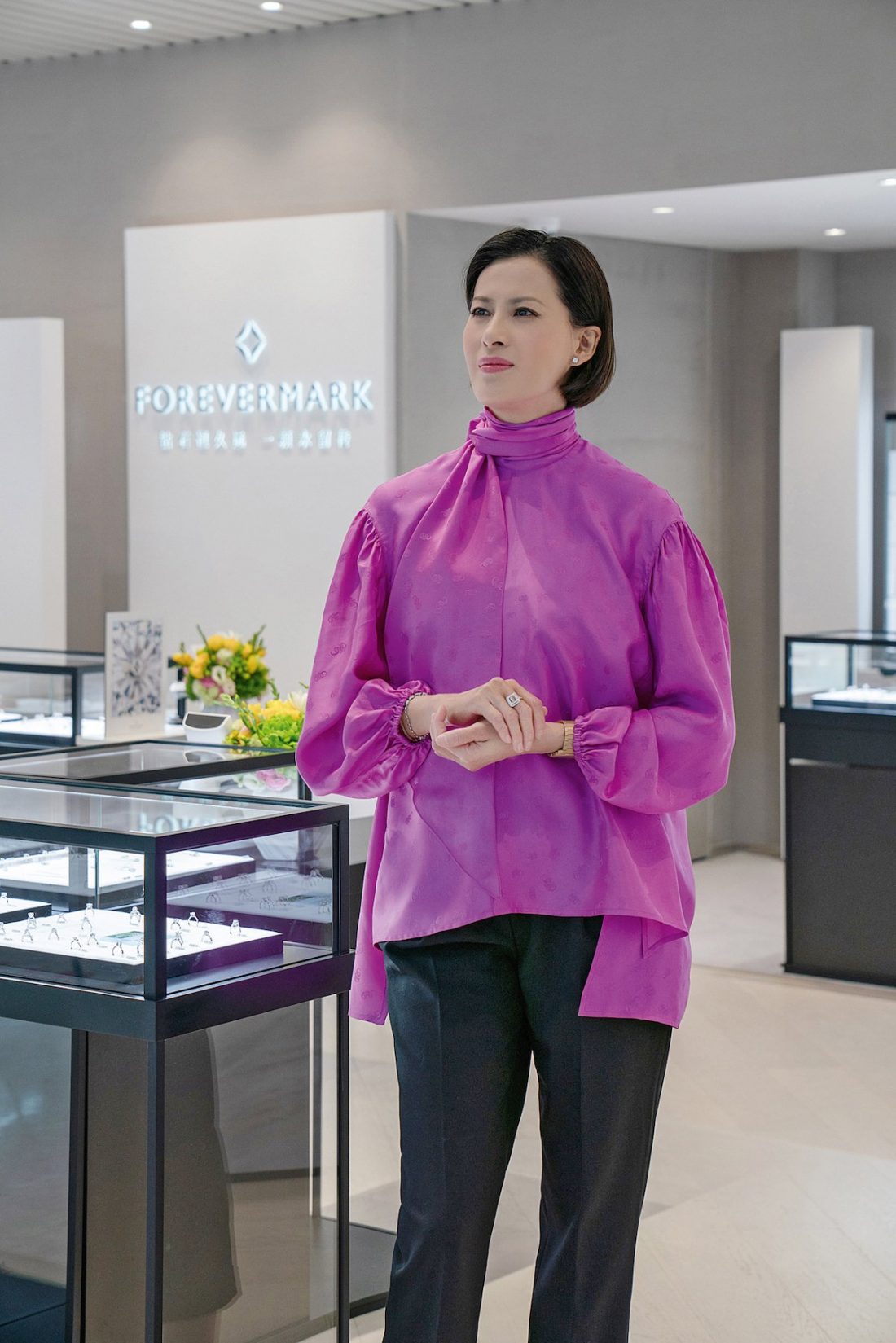
“I’m really happy we worked on it the prior year, so that we had that backbone to work with,” she reflects. “At the moment, we have the equivalent of a V4 engine. We need to get it to a V6 or V8 and, at some point, probably by 2023, we want to go turbo.”
Meanwhile, relationships remain essential to the company’s success. Fortunately, as part of the 130-year-old De Beers Group, Forevermark benefits from strong partnerships that go back several generations. Furthermore, the company is very selective about with whom it works. Nancy reveals that while jewellers are valuable partners for Forevermark, the company has chosen to work with only 400 key accounts.
“We screen our partners in order to ensure that our values are similar and that they too want to bring value in selling natural diamonds, and that they serve the right kind of consumers who are interested in the Forevermark diamond,” Nancy explains.
Times have been unpredictable of late, with the pandemic wreaking havoc across the board. But by deftly repositioning and capitalising on market trends as well as the changing desires of the consumer, Forevermark looks set to shine.
Proudly supported by:
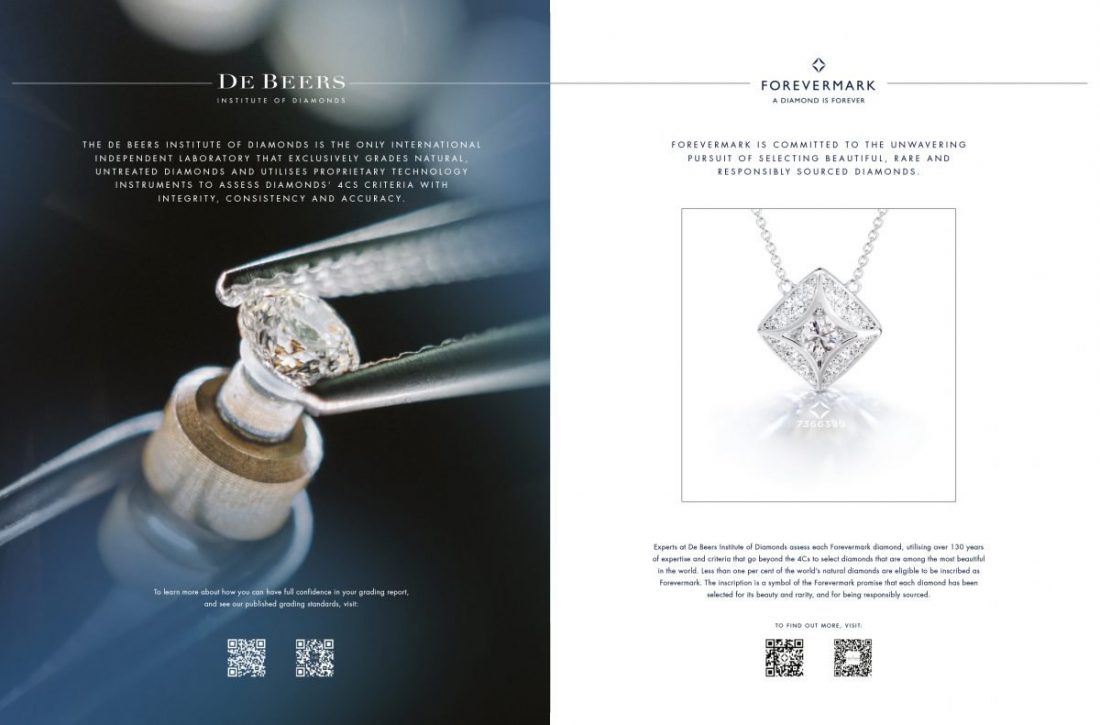
DE BEERS

